Let's meet the Three Cultures
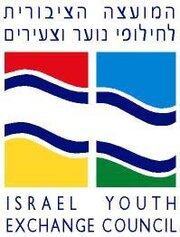
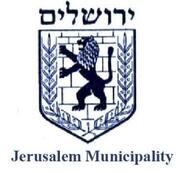
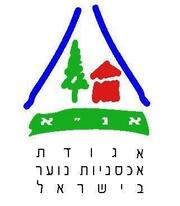
The 'Let's meet the Three Cultures' training course in Jerusalem, which came to an end on 12 December, was a real success. No less than 26 participants from 15 countries from both sides of the Mediterranean spent a week together working, exchanging ideas and learning about each others' cultures and religions.
Led by a multi-cultural team of trainers (Israeli, Palestinian, Italian, Spanish and French), participants engaged in many activities. They discovered the old market of Jerusalem, using nothing but their senses, as they were blindfolded. Participants spent time with local families to experience life as citizens of Jerusalem first-hand. They experienced the three religions holydays. Some visited the Holy Sites during the various religious days. Others used this time to live their faith at the Mosque, the Western Wall or the Holy Sepulchre Church. The group listened to experts during seminars on culture, values and religions.
To apply what they had learned during the course, participants facilitated four workshops by themselves, on various themes: thought, religion, place of women in religions and daily life.
You can click on the links below to get a glimpse of what the training course was like!
| HAVE A LOOK |
|---|
Background:
The three cultures, Christianity, Islam and Judaism, have been present in Jerusalem since early times. Jerusalem today reflects the rich and intrinsic relations between the cultures along the times, showing in itself meeting points as well as the result of conflicts along the years.
The participants will get to know and experience different aspects of the cultures, mean analysing their relation to them and creating tools to be applied in intercultural work.
Following the Training Course, the participants are expected to include their new knowledge regarding “Three Cultures” in future projects within the EuroMed YOUTH Programme.
Dates:

This course took place from December 4th - 12th, 2005 in several venues in Jerusalem (Israel). It was organised in cooperation with the National Coordinator for the EuroMed YOUTH Programme in Israel. Link to the Municipality of Jerusalem.
Aims and Objectives:
This course aimed to developing Euro-Mediterranean co-operation, reinforcing the quality of the Euro-Med YOUTH Programme within an intercultural context, increasing the participants’ skills in cultural management and their active participation in the Euro-Mediterranean process.
The following concrete objectives were set in order to reach the aims as described above:
- to know more about European and Mediterranean cultures and their relation with Christianity, Islam and Judaism;
- to reflect on the participants’ own cultural identity;
- to identify common elements in relation to the other cultures;
- to be able to create together using the past to prepare a better future;
- to offer a framework for co-operation and coach the participants in the realisation of concrete partnerships within the Euro-Med YOUTH Programme.
Profile of participants
The course was intended to be an opportunity for further training for youth workers and youth leaders who:
- are experienced in the Euro-Med YOUTH Programme (Actions 1, 2 & 5);
- are open to enrich their knowledge and awareness regarding the three cultures;
- are committed to prepare themselves for the handled subjects, previous to their arrival and to do the remote work requested by the team in case of selection;
- are motivated to undergo training and able to attend the course for its full duration;
- are supported by their organisation and have green light for implementing a Euro-Med YOUTH project;
- are able to communicate and work in at least one of the three working languages of this training course (English, French and/or Spanish);
- are resident in a Member State of the European Union or in a Mediterranean country signatory to the Barcelona Declaration.
Expected Outcome
The participants are expected:
- to enrich their knowledge and awareness regarding the three cultures;
- to develop a project based on interculturality within the Euro-Med YOUTH Programme as a result of the course.
Methodology
The course will be based on the principles and practice of non-formal education and is conceived to allow a learner-centred approach based on active and interactive methods. Participants need to self organise part of the activities and thus take a personal responsibility for their learning process. They should be open for an experiential learning experience.
Specificity of this course
The symbol of the city of Jerusalem and its long inter-religious history will be used as an educational tool. Intercultural activities will be organised using different techniques and methods linked to communication tools like: languages, arts, food, traditions, advertising, as well as to the five senses.
The participants will be divided into 4 groups according to 4 subjects:
- The Art of Living (Art de vivre)
- Thinking (scientists, philosophy, Schools etc.) (La Pensée)
- The Political power
- The Economy (commercial activity)
They will have to make a research about the topic, how it was in the past; and they will have to prepare and organise one active performance to provide these discoveries to the other participants; each topic needs to be crossed by two themes: the place of the women and the religion in each of this 4 topics in the past in order to be used during a debriefing and to reflect on today’s reality.
Programme Elements
The course programme will address the following key modules (the modules are described by a set of issues which are indicative and not exhaustive and will be developed further):
- Why Euro-Med co-operation projects?
- Communication and group dynamics
- Christianity, Islam, and Judaism within Euro-Med
- Definitions of culture, multiculturalism, and interculturalism
- Intercultural awareness
- International teamwork
- Overall evaluation of the course
- Suggestions for follow-up
 Let's meet the Three Cultures
Let's meet the Three Cultures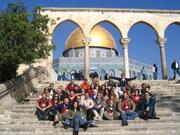 Participants of the training course
Participants of the training course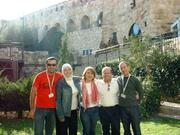 The Team
The Team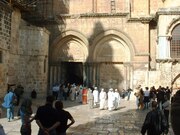
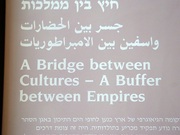
Downloads
The following downloads are available:
- TC Let's Meet the Three Cultures Programme
Download the programme for the "Let's meet the three cultures" training course, from 4 to 12 December 2005, in Jerusalem
